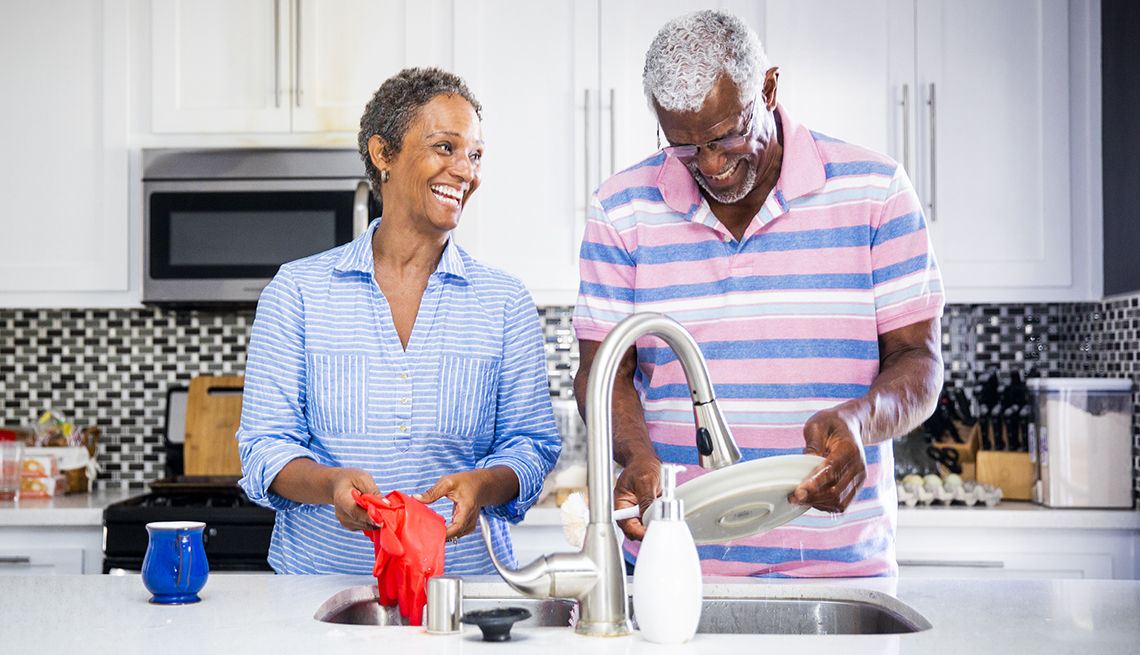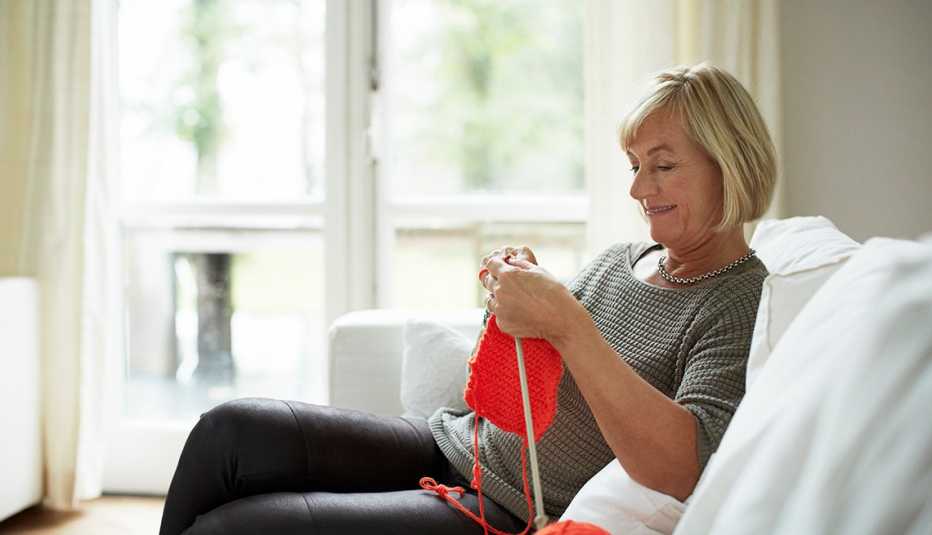Staying Fit
"We used to argue about who left the orange juice carton on the kitchen counter,” said the 64-year-old woman, referring to her husband of 30 years. “But now those little things no longer seem to matter.”
She was reflecting on how quickly and utterly life has changed for the two of them and for millions of other American couples who find themselves hunkered down in their homes under governors’ orders, to decrease the spread of COVID-19. During this pandemic some of these couples are experiencing the cliché “Too much togetherness isn't good for a marriage.” As creatively as they devise new household routines to keep from stepping on each other's toes during weeks-long confinement, they still cramp each other's style and work each other's nerves. Friction is inevitable. Petty arguments play out.


AARP Membership— $12 for your first year when you sign up for Automatic Renewal
Get instant access to members-only products and hundreds of discounts, a free second membership, and a subscription to AARP the Magazine.
But for many of the individuals and couples over 50 we see in our psychology practices, the enormity of the current health threat has put into perspective these small annoyances. Indeed, they've demonstrated to us that an increased sense of emotional togetherness — conveyed by a shared laugh, a warm glance across the table or a reassuring touch — is very good for a marriage during a time of national and personal crisis.
There are ways of strengthening this sense of togetherness through daily actions that enhance love (and increase tolerance levels!). Here are some ideas.
Recognize and forgive fear
Sometimes, spouses aim criticism and anger at each other because expressing those emotions makes them less vulnerable than sharing their unspoken fears. Then those jabs quickly provoke an argument. But if couples can recognize the panic beneath their irritability, they can prevent themselves from taking each other's barbed comments so personally. And if they can see that they have overlapping needs for comfort and reassurance during these frightening times, they can then turn toward, rather than against, each other.
What this requires is listening well and responding sympathetically. Ask about your partner's feelings. Suggest that maybe she is feeling overwhelmed by the situation at hand, and then offer your support. Share your own feelings of anxiety. You are not solving problems now; you are just listening to and validating each other.
Grieve together
Many of us have already been grieving the losses of routines, activities and jobs. But much worse sorrow is likely to come during this pandemic as colleagues, neighbors, acquaintances, friends and relatives die. Like fear, deep sadness often masquerades as irritability and anger. It is far better for spouses not to react to that anger but, instead, to sense the emotional pain beneath it and then reach out to each other for caring and supportive conversations.



































































